7 things interior designers say you should always try to thrift
Designers let us know what they look out for when shopping second hand
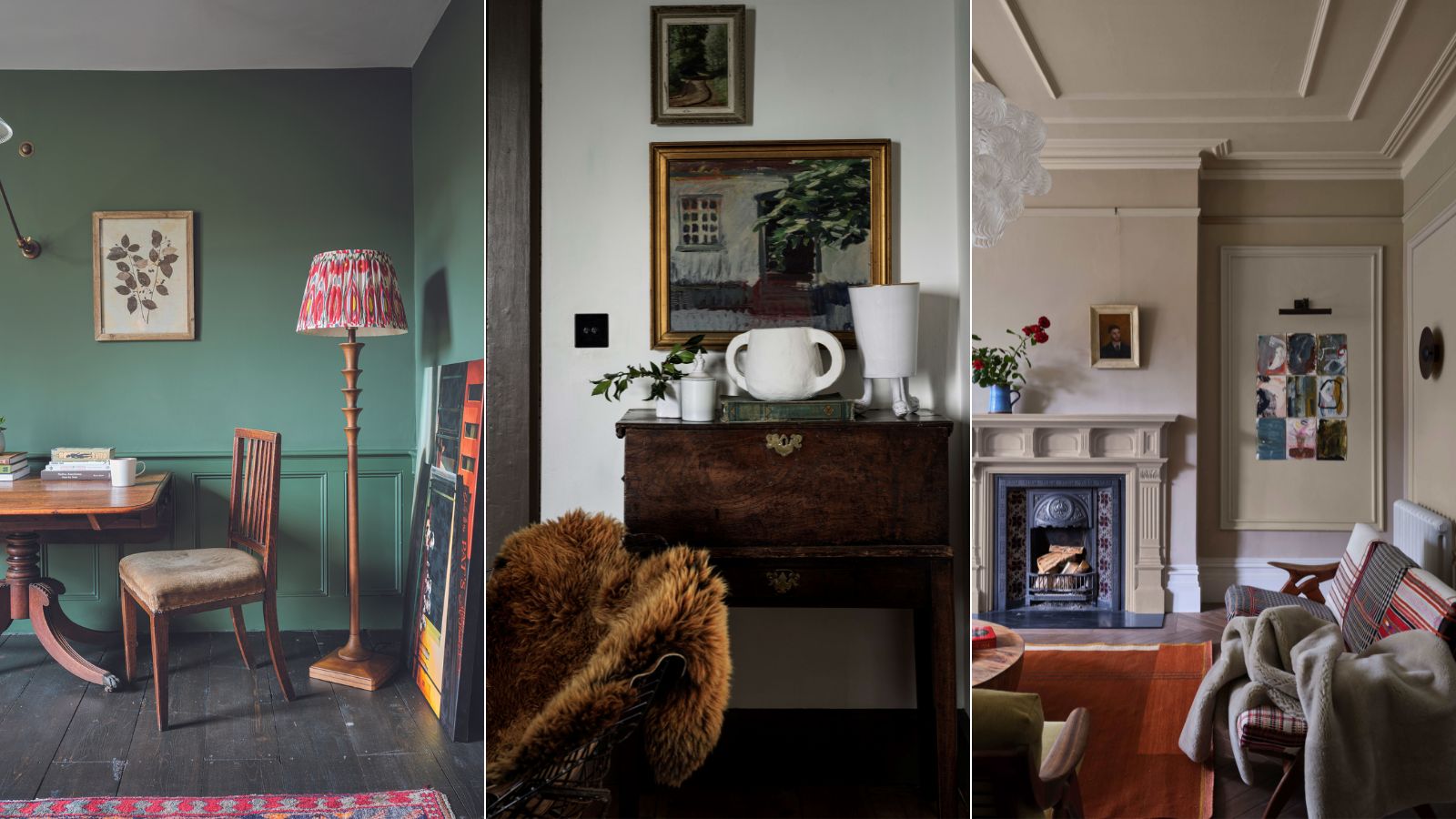

Thrifting and buying interior decor and furniture second-hand is something I will always advocate for. Not only is it often cheaper and better for your carbon footprint, but it's these pieces that add personality and charm to a home, and make it feel lived in, which is far more important than closely following interior design trends. For me, the coolest homes are the most characterful.
But what are the pieces you should be looking for when thrifting? We asked interior designers for their tips on shopping second-hand and what pieces they say you should try and never buy new.
5 pieces to always try and buy second hand
I am a thrifting enthusiast. Firstly, it's because I love a bargain, but I also like to fill my home with certain pieces that have something about them. My style is relatively minimalist, but I never want my home to feel stark, so I used second-hand buys to bring in that all-important character and rustic style. It's so easy to buy second-hand decor and furniture now too, with so many online marketplaces you can find plenty of gems. But what are the best pieces to look out for?
1. Artwork
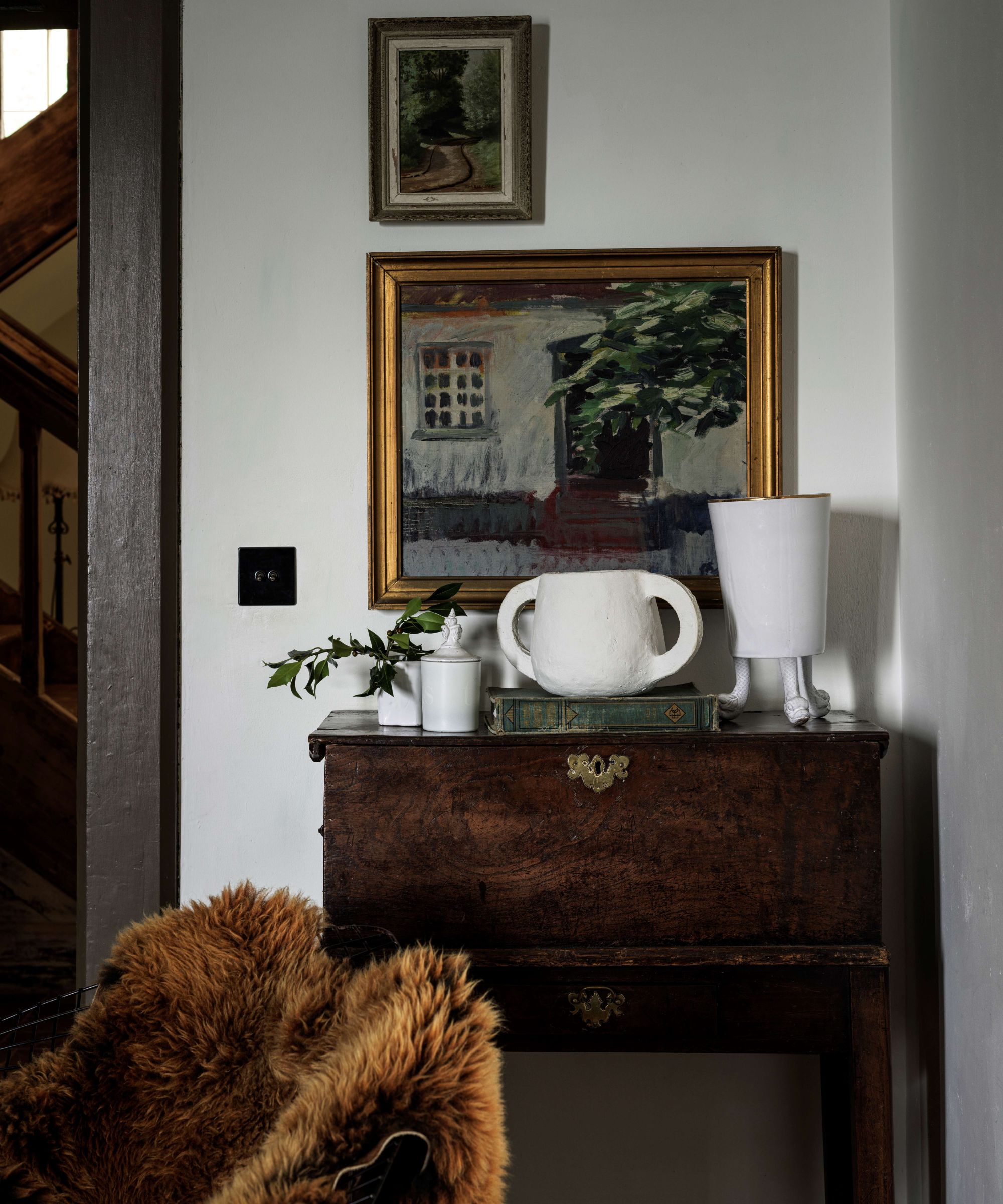
'Decorating with vintage items adds real character to a space bringing a uniqueness, and often a history that can’t be achieved with mass-produced items,' explains designer Tom Rutt. 'Artwork and lighting (think mid-century and Murano) are great items to purchase second hand from markets or antique stores at a fraction of the price than buying from a gallery or a reproduction store.'
Honestly, my tip when looking for artwork secondhand is, unless you are serious about curating a collection and want to invest in pieces, don't worry too much about the origins of the work. If you like it and it has a place in your home that's all that needs to matter. Decorating with art doesn't have to be serious and expensive. And look for frames too, you might hate what's in it but buy it if you like the frame as you can obviously switch it out for something that's better suited to your tastes.
2. Characterful decor

This, for me, is what thrifting for a home is all about. Finding those quirky, intriguing pieces of decor that add so much character to a display, whether they are used on shelving, to style a kitchen countertop, or to add something unexpected to a nightstand.
'Adding thrift finds to mix and match with your newer anchor furniture pieces is one of the most fun aspects of designing and decorating a home,' explains designer Kathy Kuo. 'I don't think there are any hard and fast rules with thrifting, but my advice would be to look for smaller decorative accents that really tell a story and feel unique. I have a stack of vintage books that I used as part of my mantelpiece decor motif and I love that there's so much history there and that they're thrifted pieces that tie into one of my personal passions – reading!'
3. Books
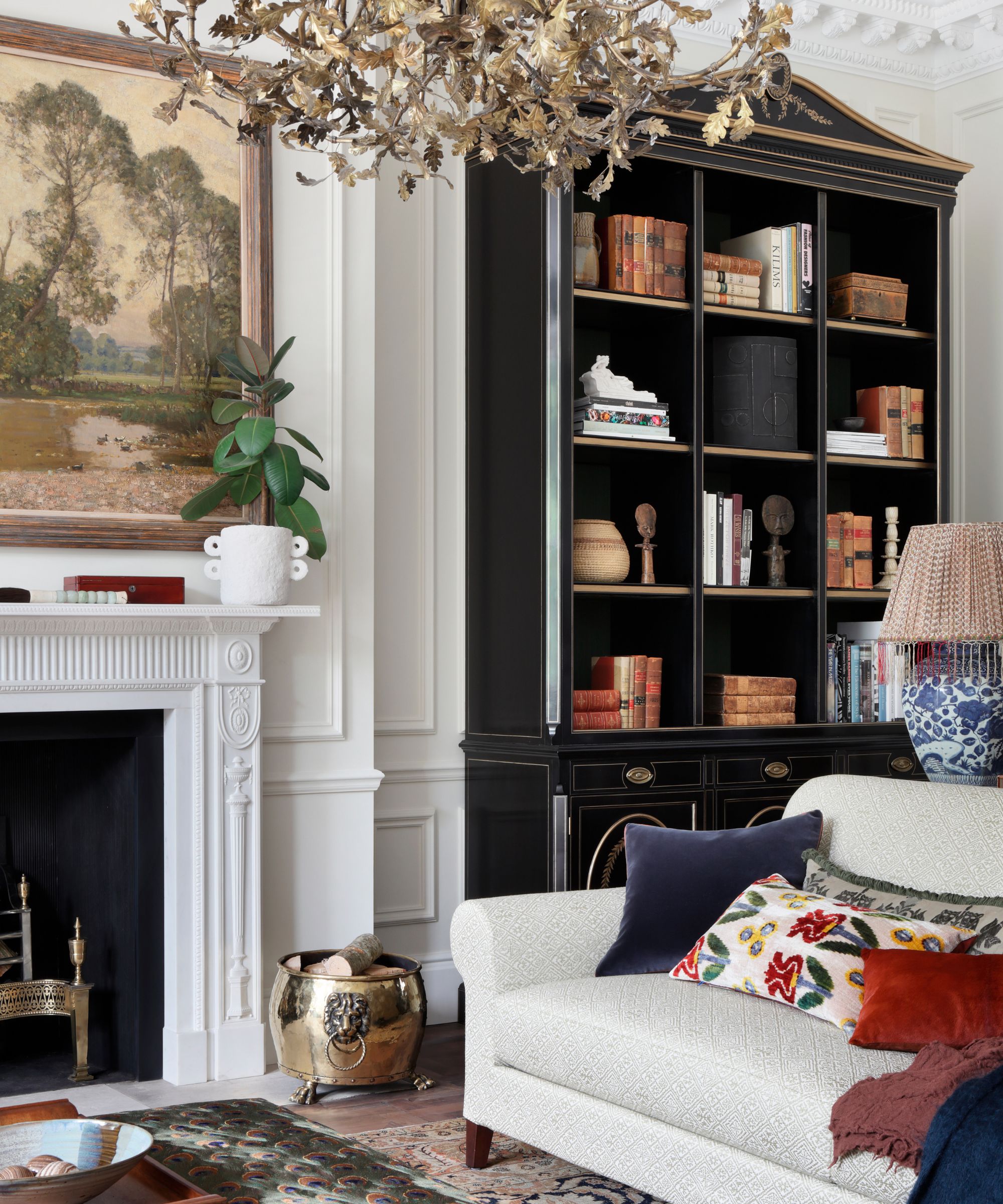
Speaking of books, unless it's a new release I am desperate to get my hands on, I never buy them new anymore. There are so many places to buy books second-hand, and along with scooping up a few current reads, I also love to thrift books purely for aesthetical reasons. Decorating with books, especially thrifted ones that have a bit of interest and history, is a simple way to inject some interest into shelving or a nightstand.
'In all my projects, I source second-hand books,' says designer Irene Gunter. 'They add a touch of personality and undeniable charm to any space, which I love! The versatility of second-hand books is another reason why they have become a personal favorite. They can be repurposed and used in a myriad of creative ways: they can be artfully stacked on a coffee table to create a visually appealing centerpiece; they can be thoughtfully arranged on a bookshelf, where they serve both a functional element, as well as an aesthetic one, adding depth and dimension; or they can even be used as a stand for other decorative items
'When it comes to the arrangement of the books, the choices are endless. They can be color-coordinated for a visually harmonious effect. Alternatively, they can be arranged by size, subject, or author - adding a methodical and organized feel to the space. Personally, I lean towards finding books in a variety of sizes and colors. This enables me to take a more organic approach when arranging them.'
'In addition to the aesthetic and functional benefits, opting for second-hand books instead of purchasing new ones is a more sustainable and environmentally friendly choice. It's a fantastic way to breathe new life into pre-loved books, saving them from the unfortunate fate of ending up in a landfill!
4. Furniture
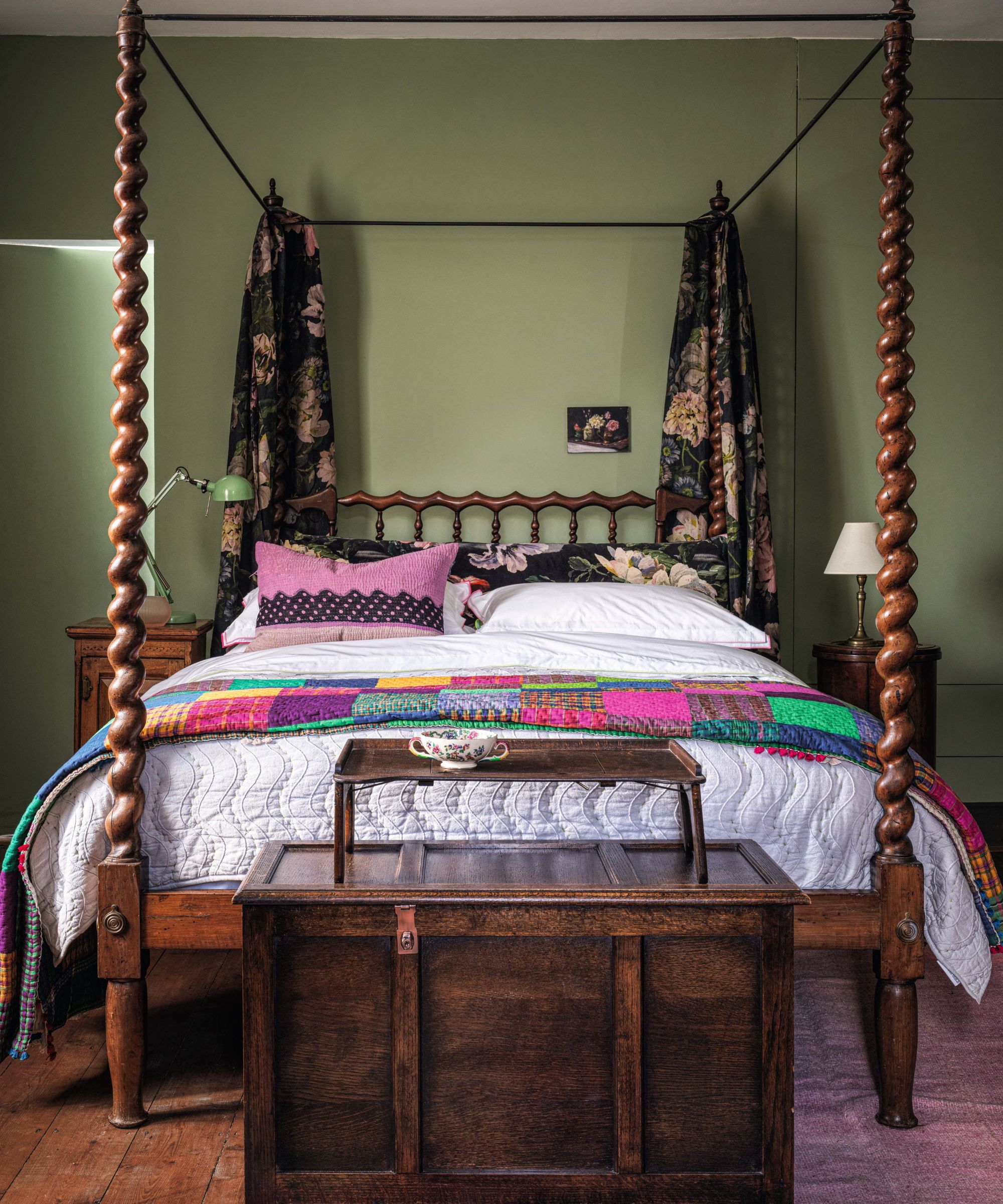
Buying furniture second-hand is often a cheaper way to buy larger, original pieces, and even if you are more into modern or minimalist style, mixing in a touch of old and new always works.
'I try to buy as much secondhand furniture and decor as I can because 1) I love it and 2) It's better for the environment--win-win!' says designer Bethany Adams. 'I especially reach for vintage brass, copper, and chrome pieces because they have a beautiful patina you'll never get with new pieces. This implied age gives a room soul and substance and subtly implies you're a collector with fabulous taste.'
'Designer dining chairs and occasional chairs are often a great vintage buy.' adds Cherie Lee, founder of Cherie Lee Interiors. 'Structurally the timber frames will last multiple lifetimes and can be heirloom pieces past down from one generation to another. Chair designs are often timeless with the fabric or leather being the element of the chair that dates or time stamps them. The beauty of them is that they can be recovered and re-varnished or even stained time and again to suit a new scheme or home.'
And designer Kati Curtis says, 'I always tell my clients to purchase case pieces, such as dressers and nightstands, as antiques or vintage items. Antique furniture, inherently rich in history and character, infuses a distinctive charm into any space. Moreover, these pieces are typically crafted with superior quality materials and an attention to detail that's hard to find in contemporary, mass-produced furniture.'
5. Lighting
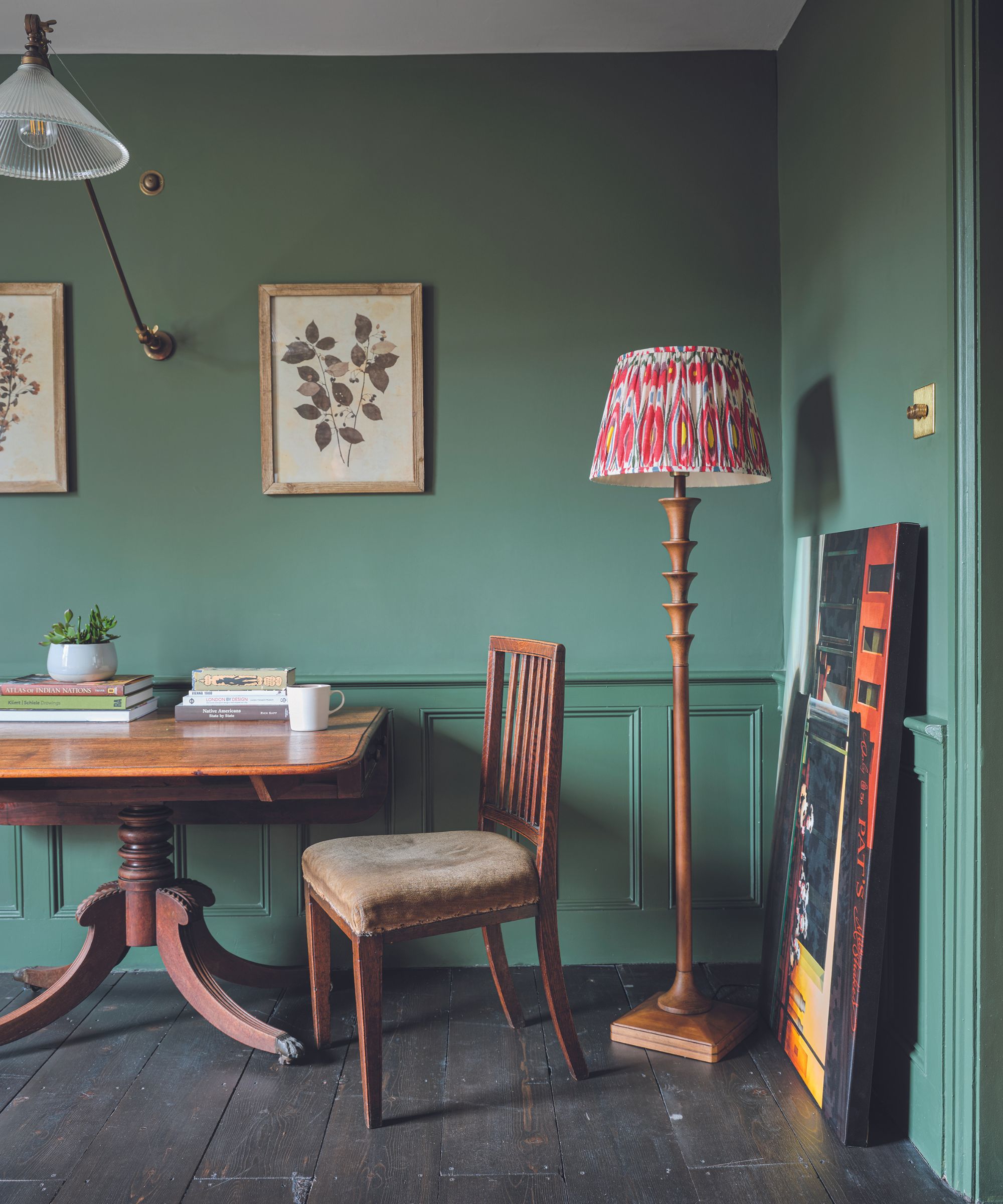
My living room lighting is all thrifted, it's probably the main thing I look for when shopping second-hand, firstly because beautiful lighting isn't cheap and also you can easily update second-hand finds with new shades or a lick of paint. I recently picked up a bobbin lamp, they are everywhere in interior design trends right now. I painted in a dark brown and added a new scalloped shade, it looks perfect and costs half the price of buying new one.
'Lighting plays a crucial role in interior design and can make or break the aesthetics of a space. However, procuring the perfect lighting fixtures doesn't always mean buying new ones. Sourcing second-hand lighting, such as vintage pieces not found in mainstream stores, never fails to add a touch of charm to your interior design, creating a nostalgic ambiance that modern pieces can't replicate.' explains Irene.
'Choosing second-hand is also a sustainable choice, reducing the demand for new products and the waste generated. Budget is another factor to consider. With the right research, you can find high-quality second-hand fixtures at a fraction of the cost of new ones. This allows you to allocate more money to other areas of your project.'
6. Mirrors
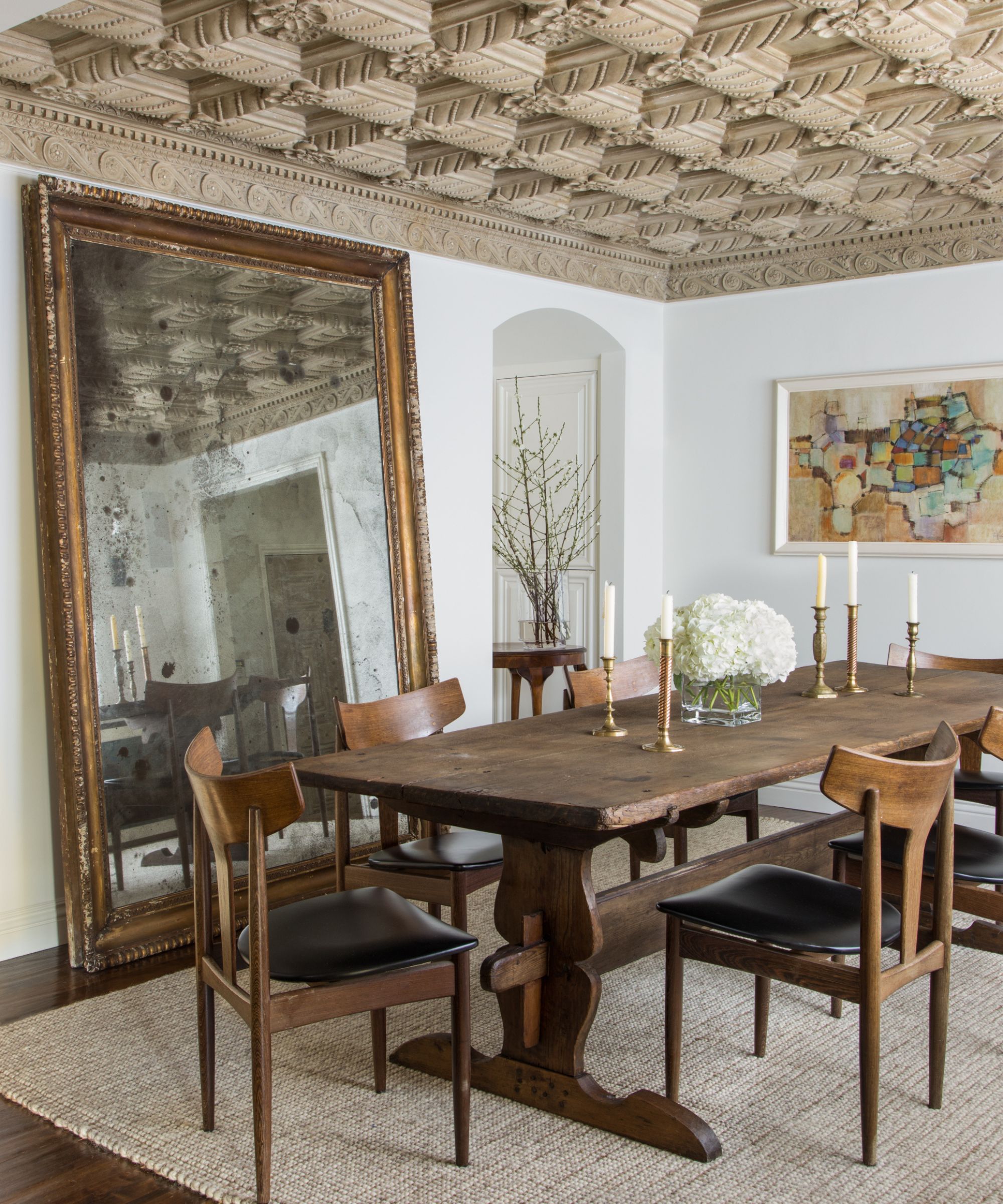
When decorating with mirrors, it's often second-hand finds that are going to work best. Plus I have found some great dupes for those 'vintage' mirrors that are so popular right now and so many brands are recreating.
'Mirrors are an indispensable part of any home decoration,' continues Irene. 'They not only add aesthetic appeal but also create an illusion of space. Second-hand mirrors often come with a unique charm that new mirrors lack. They bring with them a history and a vintage appeal that can add a lot of character to your home. Whether it’s an ornate mirror that used to hang in a grand mansion or a simple, rustic mirror from an old farmhouse, each piece has its own story to tell.'
7. Rugs
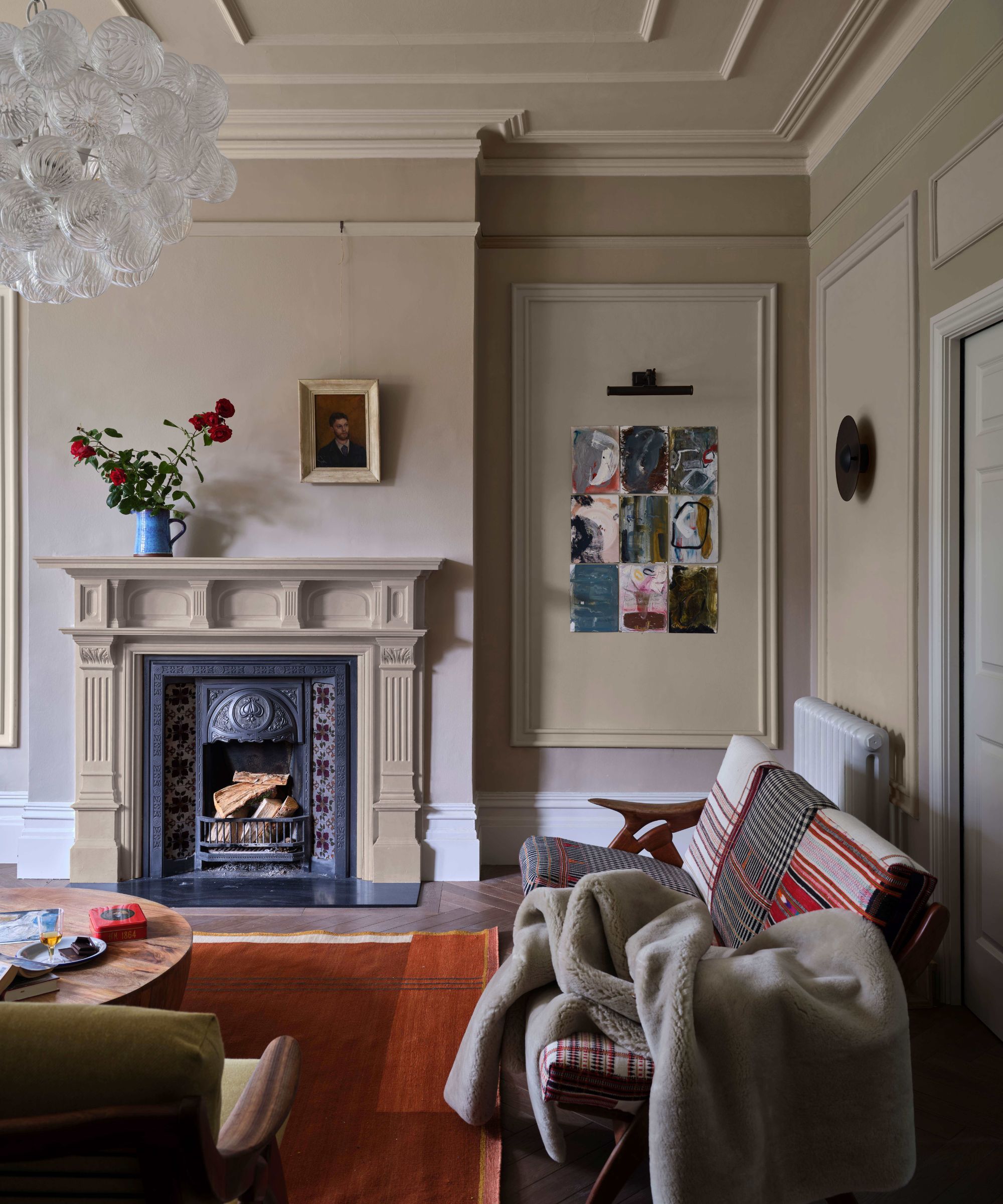
A well-worn vintage rug is a classic. It's a look that will never date and can work with so many looks from farmhouse to boho. Usually, second-hand rugs aren't super cheap, they are usually handmade and really beautiful pieces but they are still more affordable than buying new, especially if you are after a really large area rug.
'We often encourage their clients to consider incorporating vintage rugs, oil paintings, and accessories into their decor,' explains Jennifer Davis of Davis Interiors. 'Vintage rugs are unique and add character. Oil paintings can become the statement pieces that anchor the overall aesthetic of a space. Vintage accessories like pottery, dishware, and photo frames bring a sense of nostalgia and personality to a room, creating an eclectic and charming atmosphere that simply can't be replicated with mass-produced items. We often will head to the used bookstore to style our bookshelves as well. The prices can't be beat!'
Thrifting decor and furniture can be such a joy. There's such a great feeling, a satisfaction when you find the perfect piece, it costs less than buying a new one and will add more personality to your home. With so many marketplaces online now, it's so easy to source pieces too.
My tip top is to always have a list in your phone of things you are after or styles you like, and take down measurements of spaces you want to fill. That way if you come across a second-hand find you can always check if it's going to work in your space.
Sign up to the Homes & Gardens newsletter
Design expertise in your inbox – from inspiring decorating ideas and beautiful celebrity homes to practical gardening advice and shopping round-ups.

I am the Head of Interiors at Homes & Gardens. I started off in the world of journalism in fashion and luxury travel and then landed my first interiors role at Real Homes and have been in the world of interior design ever since. Prior to my role at H&G I was the digital editor at Livingetc, from which I took a sabbatical to travel in my self-converted van (not as glamorous as decorating a home, but very satisfying). A year later, and with lots of technical DIY lessons learned I am back to writing and editing, sometimes even from the comfort of my home on wheels.
-
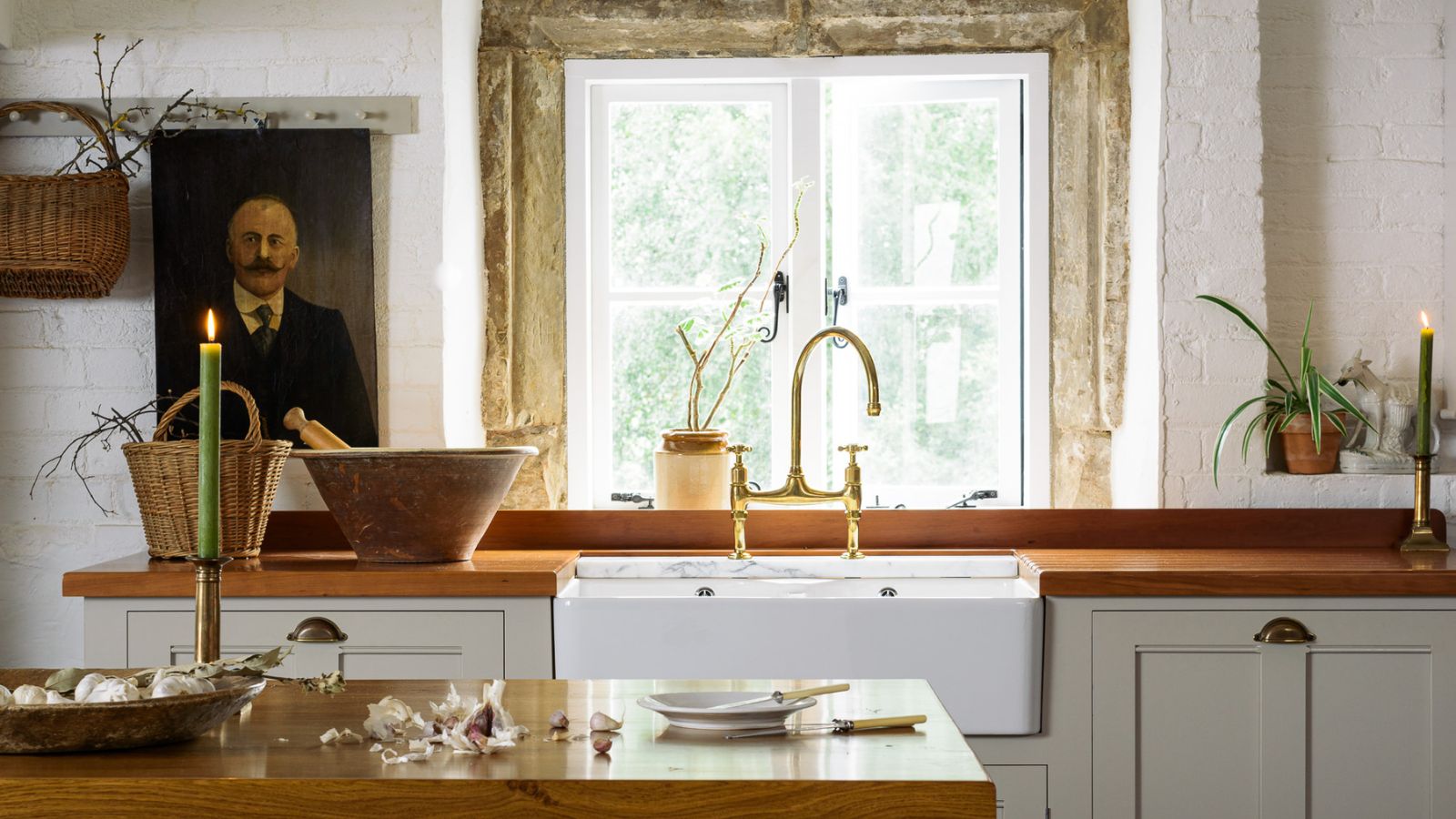 This simple marble hack elevates my budget-friendly wooden kitchen countertops and prevents the dreaded water damage for way less than you’d think
This simple marble hack elevates my budget-friendly wooden kitchen countertops and prevents the dreaded water damage for way less than you’d thinkThis design trick looks expensive, solves a problem, and was the easiest decision I made during my kitchen reno
By Charlotte Olby Published
-
 Emily Blunt gifted Cillian Murphy this $545 pillow – she's 'obsessed' with these luxury pillows, and frankly, so are we
Emily Blunt gifted Cillian Murphy this $545 pillow – she's 'obsessed' with these luxury pillows, and frankly, so are weThe Oppenheimer stars sleep on this ultra-luxe goose down pillow – here's why we love it – plus our affordable alternatives from $35
By Sophie Edwards Published